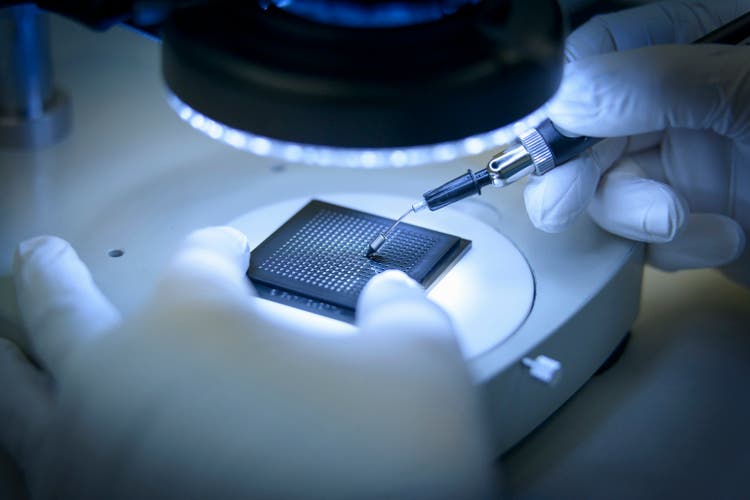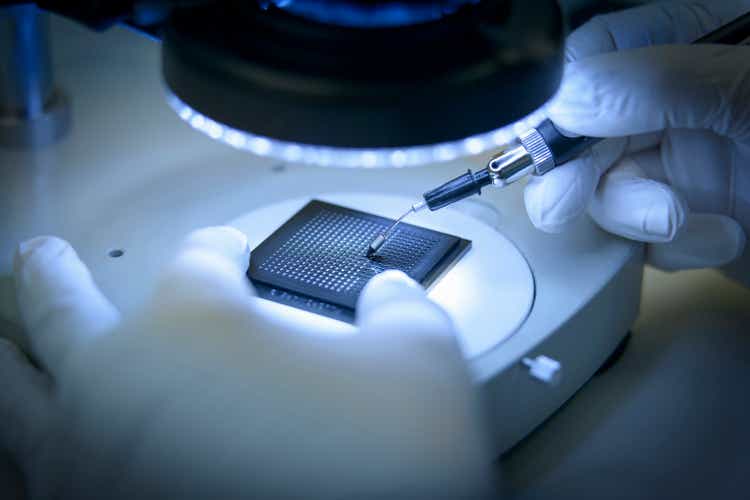
Monty Rakusen
Alpha and Omega Semiconductor (NASDAQ:AOSL) was in focus on Monday after TF International Securities analyst Ming-Chi Kuo said some of its chips in Nvidia’s (NASDAQ:NVDA) GB300 and B300 systems may be experiencing “severe thermal issues.”
The chips in question are Alpha and Omega Semiconductor’s DrMOS 5×5 offerings, which are used in the power stage and are capable of handling the extreme current during fast load transient typical for CPUs and GPUs.
DrMOS stands for Driver metal-oxide-semiconductor field-effect transistors, or MOSFET — and is a type of power module to control conductivity of electric signals.
“The chip itself may not solely cause the thermal issue but could also result from insufficient optimization in other designs, such as system thermal management,” Kuo said on his blog.
Shares of Alpha and Omega Semiconductor (AOSL) fell about 3% on Monday after Kuo’s post, while Monolithic Power Systems rose about 4%. Nvidia’s shares were down about 2%.
Nvidia’s GB300 are the tech giant’s next-gen AI server offerings.
If the issues continue, Nvidia could look to alternative DrMOS suppliers, including requesting testing samples from Monolothic Power Systems (NASDAQ:MPWR) and accelerate the testing of Monolothic’s 5×6 DrMOS offering.
“Such actions could dampen the market’s highly optimistic outlook on AOS’s future orders in the short term,” Kuo added.
Alpha and Omega, Monolithic, Nvidia and Kuo have not yet responded to a request for comment from Seeking Alpha.
If Nvidia were to switch to Monolithic’s 5×6 DrMOS, it would likely come with a higher cost, but better thermal performance, Kuo said.
“If the thermal issue with 5×5 DrMOS persists, the likelihood of Nvidia switching to 5×6 DrMOS will increase, potentially benefiting MPS, which has a technology advantage in the 5×6 design,” he added.
Nvidia’s GB300 and B300 line are still a ways off from going into mass production, so the current issue does not preclude Alpha and Omega Semiconductor from eventually benefiting, Kuo added.
